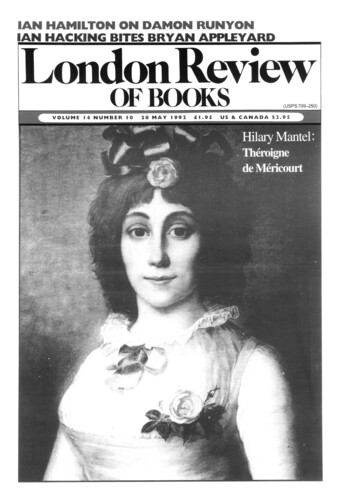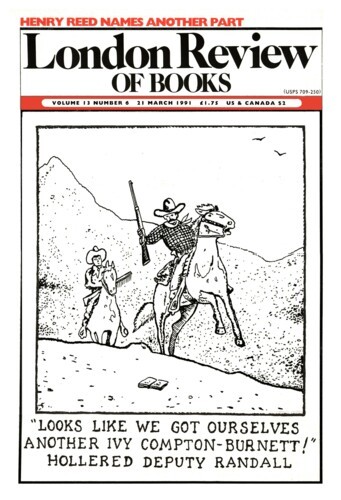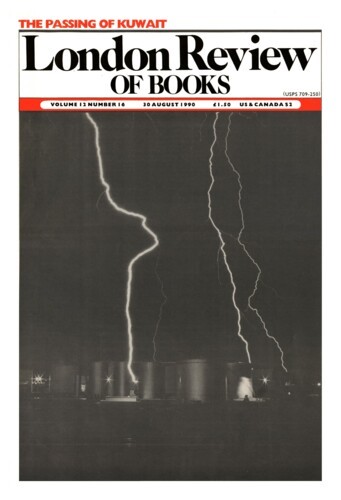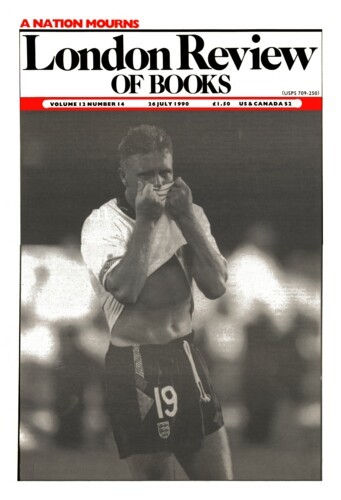Whangity-Whang-Whang
Ian Hamilton, 28 May 1992
Damon Runyon is famous for shunning the past tense, as in: ‘I am going to take you back a matter of four or five years ago to an August afternoon … On this day I am talking about, the Lemon Drop Kid is looking for business.’ Even when one of his stories has been told, is over, and he permits his protagonists a little late-night deconstruction, there is still this unrelenting attachment to the present. ‘“Well, Mrs B,” he says. “You almost get a good break when old Doc News drops dead after you stake his wife to the poison because it looks as if you have her where she can never wriggle off no matter what she says. But,” Ambrose says, “my friend Mrs News is cute enough to seek my advice and counsel.” ’ This speech belongs in the past tense, but the author is determined not to put it there. By this stage in Runyon’s career, to have done so would have brought professional dishonour.





